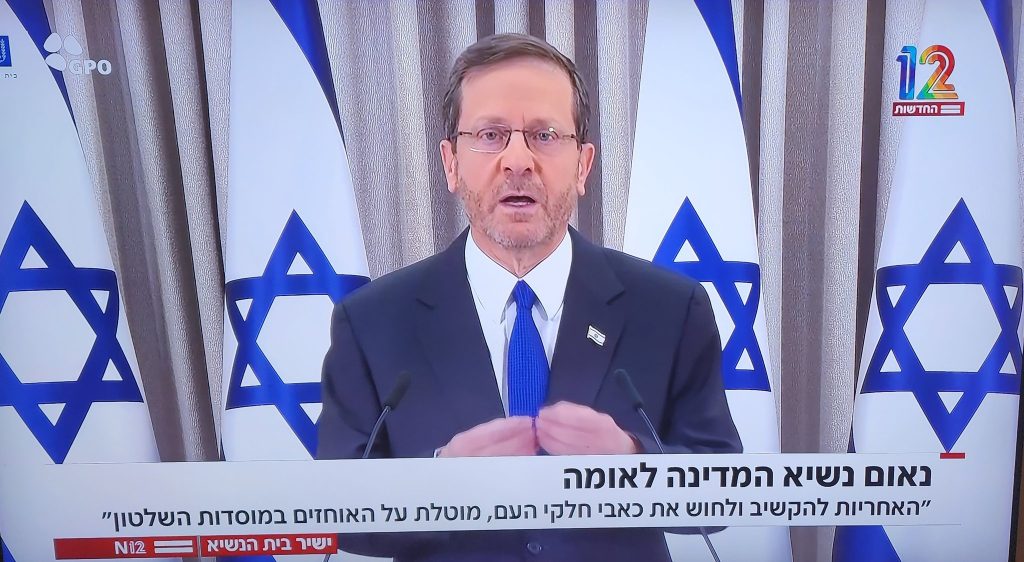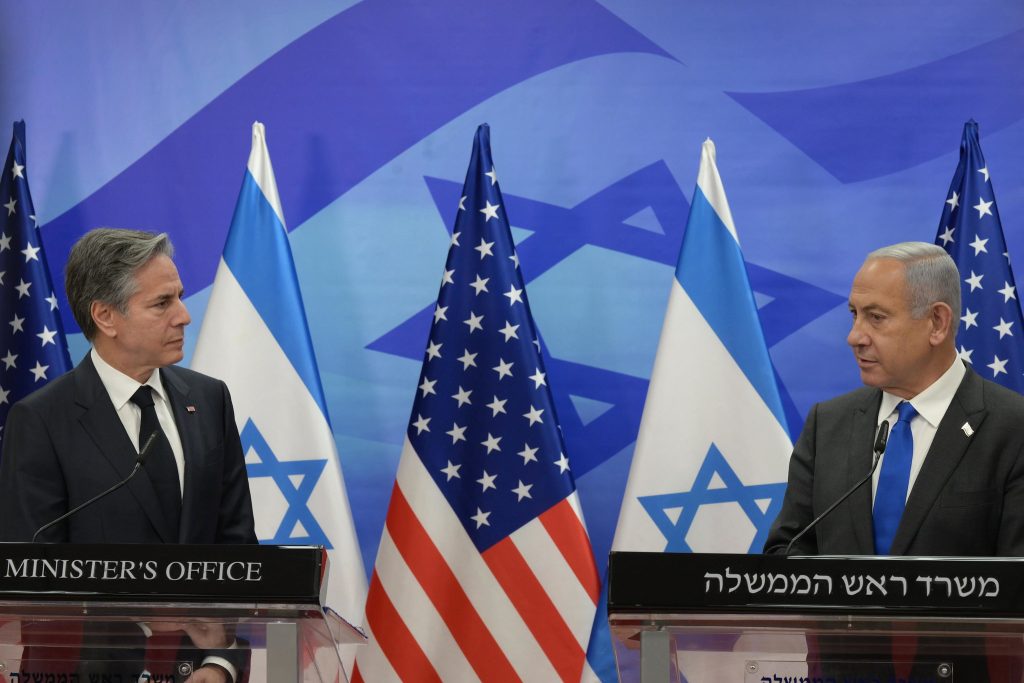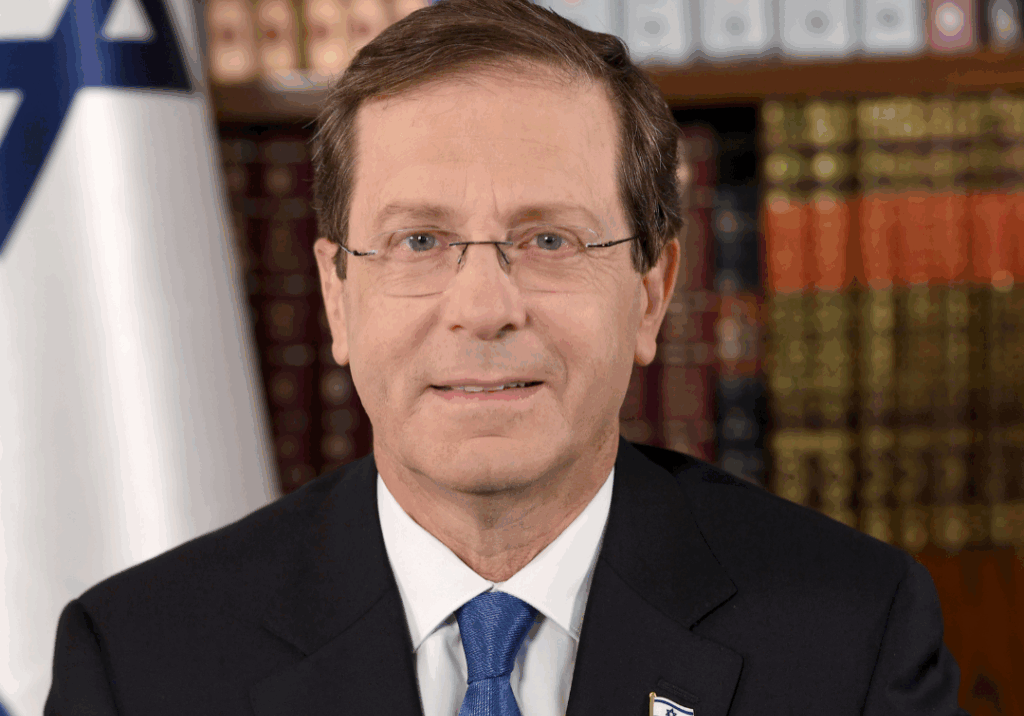Australia/Israel Review
Herzog’s moment?
Feb 24, 2023 | Amotz Asa-El

Between a controversial plan and the pushback to it
Having finally broken Israel’s three-year political deadlock and emerged from last November’s election with a narrow, but clear victory, Binyamin Netanyahu’s conservative coalition quickly produced a blueprint for sweeping judicial reform. The reform plan’s many critics say it is so radical it appears to have been inspired by Hungary’s model of “illiberal democracy”.
The plan includes proposals to change the selection process for judges, so the government will dominate it; to allow the legislature to cancel any Supreme Court ruling with a simple 51% majority; to demand an 80% majority among Supreme Court justices in order to overturn legislation; and to forbid the Supreme Court from scrutinising constitutional legislation.
The plan, which opponents charge is meant to disempower the judges and impose complete control of the judiciary by the politicians of the governing coalition, is so sweeping, and the schedule the Government has set for its passage so rapid, that pundits have compared it to a political blitzkrieg – a lightning attack designed to stun the enemy into surrender.
The enemy, however, as so often happens with battle plans, didn’t play its scripted part. Within days of the plan’s announcement, opposition gathered momentum and soon reached social, political, and geographic levels that the reform’s mastermind, Justice Minister Yariv Levin, apparently did not foresee.
The controversy has become so contentious, and the sense of national crisis it spawned so grave, that Israeli President Isaac Herzog felt compelled to use his ordinarily ceremonial post in order to intervene in the political process. His effort has been dismissed by some as quixotic and praised by others as heroic, but most Israelis appear to hope that, even if it does not end the crisis, it will at least help lower the flames of conflict that the plan has sparked.
The backlash to the judicial reform blueprint moved beyond the Knesset and media early, when Supreme Court President Esther Hayut called it, in a televised speech, “a plan to shatter the legal system” and “to change the state’s democratic identity.”
While her statement was surprising in its tone and language, opposition from the judiciary was predictable. Yet the same cannot be said regarding the Bank of Israel, and its soft-spoken Governor Amir Yaron, who warned Netanyahu that the planned reform might chase away foreign investors.
Yaron was joined by former governors Yaakov Frenkel and Karnit Flug, and 270 economists from all Israeli universities, who warned of the plan’s potential economic fallout, noting that foreign investors prefer countries with strong and independent judiciaries.
Tel Aviv University’s Professor Moshe Hazan even announced his resignation from the Bank of Israel’s Monetary Committee, which sets interest rates, saying he wanted to join the pro-judiciary demonstrations, and could not do so while serving in a public capacity with the bank.
The economists were then followed by 500 hi-tech firms declaring a one-hour warning strike in protest against the plan.
Meanwhile, in the street, an anti-reform demonstration attended by 80,000 people in Tel Aviv ten days after the blueprint’s introduction quickly metamorphosed into regular demonstrations nationwide that now take place every Saturday night.
On Feb. 13, as the Knesset Law Committee convened to vote on a first-reading draft of the blueprint’s first clauses, some 100,000 demonstrators flocked to Jerusalem from across the country, creating a human forest covered by blue-and-white flags.
Meanwhile, protestations and warnings from notable Israelis continued to pile up, including more than 200 law professors and former Supreme Court justices, seven Israeli Nobel Laureates, a battery of former chiefs of the IDF, General Security Service, and the Mossad spy agency, and 70 senior rabbis.
What was initially predicted to remain a domestic Israeli affair then spread beyond the Jewish state’s border.

Israel’s international allies, like US Secretary of State Antony Blinken (left), are starting to weigh in on the judicial reform controversy (GPO/ Flickr)
First, following a meeting with Netanyahu in Jerusalem, US Secretary of State Antony Blinken said in a live broadcast alongside Netanyahu: “Building consensus for new proposals is the most effective way to ensure they are embraced and that they endure.”
Blinken’s understated, but unambiguous, criticism of the way the Levin Plan was being imposed was then seconded by President Joe Biden, who in reply to New York Times columnist Tom Friedman’s request for a comment on the Levin Reform, replied:
“The genius of American democracy and Israeli democracy is that they are both built on strong institutions, on checks and balances, on an independent judiciary. Building consensus for fundamental changes is really important to ensure that the people buy into them so they can be sustained.”
Before that, French President Emmanuel Macron reportedly told Netanyahu during their Feb. 2 meeting in the Elysee that the reform “threatens to break the power of the Supreme Court, the only institutional counter-power in the government,” and that, if it passes, Paris would be forced to conclude that Israel has broken away from “the common conception of democracy.”
The foreign backlash has also transcended diplomacy, as 56 world-renowned economists, including Peter Diamond of MIT, Oliver Hart of Harvard, Paul Milgrom of Stanford and eight other Nobel Laureates, joined a petition against the Levin Reform.
The foreign economists were joined by foreign jurists, most notably lifelong Israel supporter Irwin Cotler, a former minister of justice and attorney-general of Canada, who said “the judiciary will be undermined by the reform.”
Back in Israel, passions were running so high that two war heroes spoke openly of resorting to violence if the reforms went through.
“If someone forces me to live in a dictatorship and I don’t have any other choice, I will not hesitate to use live fire,” said David Hodak, a senior corporate lawyer who was decorated for fighting wounded as a tank officer during the Yom Kippur War.
Retired air force colonel Ze’ev Raz, who led the squadron that destroyed the Iraqi nuclear reactor in 1981, was even blunter, sharing someone else’s social media post which said: “If a sitting prime minister assumes dictatorial powers, this prime minister is bound to die, simply like that, along with his ministers and his followers.”
Both men soon retracted these statements, but the depth of the crisis and the intensity of the passions uncorked by the Levin Reform became glaring, and only seemed likely to grow. That is when President Herzog decided to step in.
In a dramatic live address on primetime TV on Feb. 12, Herzog said he felt “the powder keg is ready to explode,” and therefore decided to present a document that will hopefully serve as a basis for a dialogue that would produce a different reform, one based on broad national agreement.
The Herzog Plan includes proposals that the three branches will be equally represented in the forum appointing judges; that changes concerning the court’s usage of the “reasonableness” standard in making decisions regarding administrative acts will be decided by broad political agreement; that constitutional legislation (Basic Laws) will require four readings in Knesset instead of the usual three, and in return will not be subject to reviews by the Supreme Court; that the court will be allowed to cancel non-constitutional legislation; and that the Knesset will be allowed to override Supreme Court rulings by a yet-to-be negotiated super-majority. He also called for measures to appoint more judges and increase the speed of legal processes in the court system, issues not discussed in the Levin plan apparently designed to create some agreement between the opposing camps.
The speech’s effect remains to be seen.
The following day, Herzog met with Levin and, separately, with Opposition Leader Yair Lapid. While this may ultimately prove to have been the beginning of the negotiations that Herzog intended to ignite, as of Feb. 20, the sides still seemed irreconcilably entrenched. Lapid demanded an immediate, 60-day suspension of the legislation process to allow negotiations about the reform proposal, while Levin clarified that the legislation will proceed as planned, including during any such dialogue.
Ultimately, the Herzog initiative’s fate, along with the entire reform’s destiny, will be decided by Netanyahu. Some analysts believe he is already seeking a ladder with which to climb down from the tree Levin has placed the Government in. Some reports even claim that a rift between the two is evolving, reflecting Netanyahu’s displeasure with Levin’s inflexibility in the face of the immense pressure Netanyahu has come under.
One possible sign that Netanyahu is seeking a compromise may have been hidden in a letter signed by 12 former heads of the National Security Council, imploring Knesset Speaker Amir Ohana to seek reform via dialogue, while warning that “the intensity of the social clash” that the Levin Reform has triggered “threatens Israel’s national resilience.”
In itself, that letter was only one of many warnings and condemnations Netanyahu has received since the reform’s introduction on Jan. 4. Yet what made this one different was that its signatories included former Mossad head Yossi Cohen, one of Netanyahu’s closest aides, and a key player in helping generate the Abraham Accords normalising relations with four Arab states which Netanyahu sees as one of the supreme achievements of his political career.
The letter Cohen signed was much milder in tone than most of the anti-reform petitions, focused mainly on the need for dialogue and consensus. That is why Cohen’s presence among its signatories raises the possibility it was actually designed to help Netanyahu retreat from a campaign of rapid, radical change he may be beginning to regret.
Herzog’s speech, delivered the day after Cohen’s statement became public, offered a potential roadmap for such a retreat which, as often happens with retreats, might begin with much pain and anguish, but end with a universal sigh of relief.
Tags: Isaac Herzog, Israel






